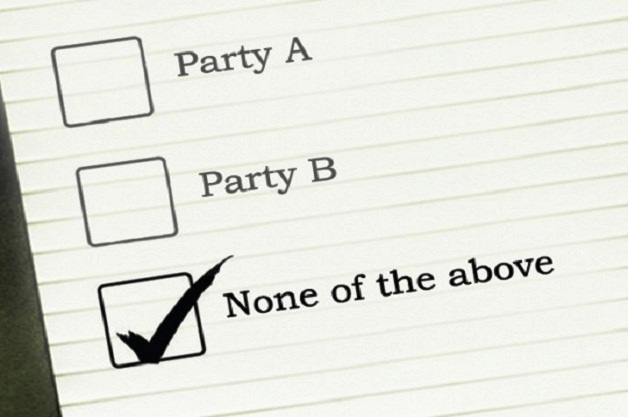“India: electoral reform allows another positive vote”
December 3 India’s electoral reform will empower people, enable greater participation and drive the selection of candidates with moral integrity, argues Shomira Sanyal, 19, a Correspondent from New Delhi in India, as the country tries a new system during local elections in five states.
India’s electoral reform will empower people, enable greater participation and drive the selection of candidates with moral integrity, argues Shomira Sanyal, 19, a Correspondent from New Delhi in India, as the country tries a new system during local elections in five states.
The sights and sounds of the election season in India are at best vibrant, at worst predictable.
The large hoardings jostle with larger than life cut-outs of political leaders. Politicians make high decibel speeches at large public rallies across big and small towns. The flurry of promises to woo the voters, allegations and counter allegations, slugfests among political parties spilling out into the open- all attempting to occupy the mind space of the voter.
Amidst the chaos are the thousands of young first-time voters like me, eager to exercise our democratic right to vote, while the proverbial cynic downs the old-wine-in-a-new bottle theory and prepares to abstain.
The melodrama has already begun. With five states in poll mode for the State Assembly elections, people are viewing these local elections as a precursor to the General elections next year. Heavyweights and bigwigs are feverishly touring to make their party presence felt.
But what is new about these elections for the average voter? Well, finally there has been electoral reform – the introduction of the “None Of The Above” (NOTA) option on the Electronic Voter Machines. The long and sustained effort of the People’s Union for Civil Liberties (PUCL), a human rights organisation, finally bore fruit.
A Public Interest Litigation filed by them in 2004 eventually got the nod from the Supreme Court. In a landmark verdict, the Supreme Court held that citizens have right to cast a negative vote, a decision which would encourage people not satisfied with any of the contestants to turn up for vote.
The apex court directed the Election Commission to provide ‘none of the above options’ at the end of the list of candidates in electronic voting machines and on ballots, to allow voters to decide against voting for any contestant.
“It’s a big judgment. People can now give fullest expression to their wish to not choose anyone,” said Sanjay Parikh, counsel for PUCL. “Rejection by the people is the biggest insult for the political class. It will have moral implications and force parties to field better candidates.”
The judgment announces that “For democracy to survive, it is essential that the best available men should be chosen … for proper governance of the country. This can be best achieved through men of high moral and ethical values who win the elections on a positive vote.”
On September 27 this year the Supreme Court on directed the Election Commission to provide a ‘none of the above’ button in Electronic Voting Machines for voters who want to reject candidates contesting elections. The top court said that if the right to vote is a statutory right, then the right to reject a candidate is the fundamental right of speech and expression under Constitution.
The court added that negative voting would lead to systemic change in polls and political parties will be forced to project clean candidates. The ‘negative vote’ may prove a game changer in elections, forcing election parties to pay greater attention to what voters seek from candidates.
The NOTA option would indeed compel political parties to nominate sound candidates, according Chief Justice P. Sathasivam and Justices Ranjana Desai and Ranjan Gogoi, in allowing a petition by the People’s Union for Civil Liberties.
Writing the judgment, the CJI said: “Giving right to a voter not to vote for any candidate while protecting his right of secrecy is extremely important in a democracy. Such an option gives the voter the right to express his disapproval of the kind of candidates being put up by the parties. Gradually, there will be a systemic change and the parties will be forced to accept the will of the people and field candidates who are known for their integrity.”
The NOTA option “will accelerate effective political participation in the present state of the democratic system and the voters will in fact be empowered,” the Bench said. The right to cast a negative vote “at a time when electioneering is in full swing, will foster the purity of the electoral process and also fulfill one of its objectives, namely, wide participation of people.”
Not allowing a person to cast a negative vote would defeat the very freedom of expression and the right to liberty, it said.
The Election Commission on 31st October 2013 finalized the election symbol for “None of the Above” (NOTA) option for voters to exercise in the assembly polls in five states and in all future polls, including the general elections scheduled next year.
The symbol is a rectangular box with the word “NOTA” written inside it. Below the name of the last candidate on the electronic ballot, there will now be a button for ghe NOTA option for electors who do not wish to vote for any of the candidates in the fray in their constituency. For the first time, voters can reject all choices for candidate and maintain their right to a secret ballot.
The latest verdict is part of series of judgments passed by the apex court on the election process. Earlier, it restrained people in custody from contesting elections. The apex court has also ruled that MPs and MLAs would stand disqualified after being convicted of serious crimes.
There may yet be wrinkles in the new system to iron out. But one thing is for sure. The voters will get their voices heard, look for change, and turn out in large numbers, empowered, to make a difference.
photo credit: dannybirchall via photopin cc
………………………………………………………………………………………………………………
About me:
I am pursuing a Bachelor’s Degree in Sociology at Lady Shri Ram College, New Delhi. I enjoy reading, travelling and meeting people. I have deep interest in developmental work that will improve the lives of India’s marginalized, and have worked in rural India with NGOs including the Right to Information, the Right to Food, the Public Distribution System, and the Mahatma Gandhi National Rural Employment Guarantee Scheme. I believe in the Gandhian saying, “Be the change you want to see”.
………………………………………………………………………………………………………………
Opinions expressed in this article are those of the author and do not necessarily represent the views of the Commonwealth Youth Programme. Articles are published in a spirit of dialogue, respect and understanding. If you disagree, why not submit a response?
To learn more about becoming a Commonwealth Correspondent please visit:
http://www.yourcommonwealth.org/submit-articles/commonwealthcorrespondents/
………………………………………………………………………………………………………………




